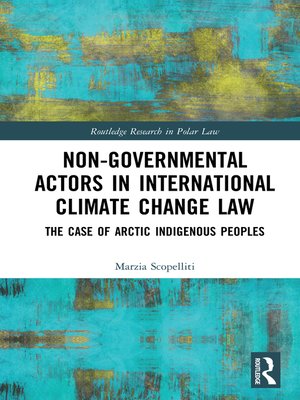Non-Governmental Actors in International Climate Change Law
ebook ∣ The Case of Arctic Indigenous Peoples · Routledge Research in Polar Law
By Marzia Scopelliti

Sign up to save your library
With an OverDrive account, you can save your favorite libraries for at-a-glance information about availability. Find out more about OverDrive accounts.
Find this title in Libby, the library reading app by OverDrive.



Search for a digital library with this title
Title found at these libraries:
| Library Name | Distance |
|---|---|
| Loading... |
Focusing on how to improve the participation of non-governmental actors in the making of international climate change laws, this book is a conversation on the relevance of a human rights-based approach to international climate change law-making.
The book considers a possible reform of the United Nations Framework Convention on Climate Change institutional arrangement, inspired by the practice and model of participation of Arctic Indigenous Peoples in the Arctic Council. Different non-State entities play a fundamental role in the development and enforcement of the climate change regime by enhancing the knowledge base of decision-making, keeping States in line with their commitments, and engaging in private initiatives aimed at mitigating the impacts of global warming. Albeit non-governmental and subnational actors increasingly work alongside States in the making of a climate change regime, the category of observers through which they participate in intergovernmental negotiations only gives them limited rights and their participation in international norm-making has at times been impaired. The relevance of a human rights-based approach consists in recognising the status of individuals and groups as rights-holders under human rights law, a paradigm that was first established by Arctic Indigenous Peoples when claiming their participatory rights in the Arctic Council, the main forum of governance of the Arctic region. This book argues that, in the absence of a globally binding treaty regulating procedural rights in intergovernmental negotiations, the emerging relationship between human rights and climate change could serve as a legal basis for the enhancement of non-governmental actors' procedural rights, establishing the right to participation as a right in itself and which can benefit the governance of climate change.
Due to the relevance of the addressed subject, the book is destined to a broad readership and will be of use to academic researchers, law practitioners, policy-makers and non-governmental organisations' representatives.







